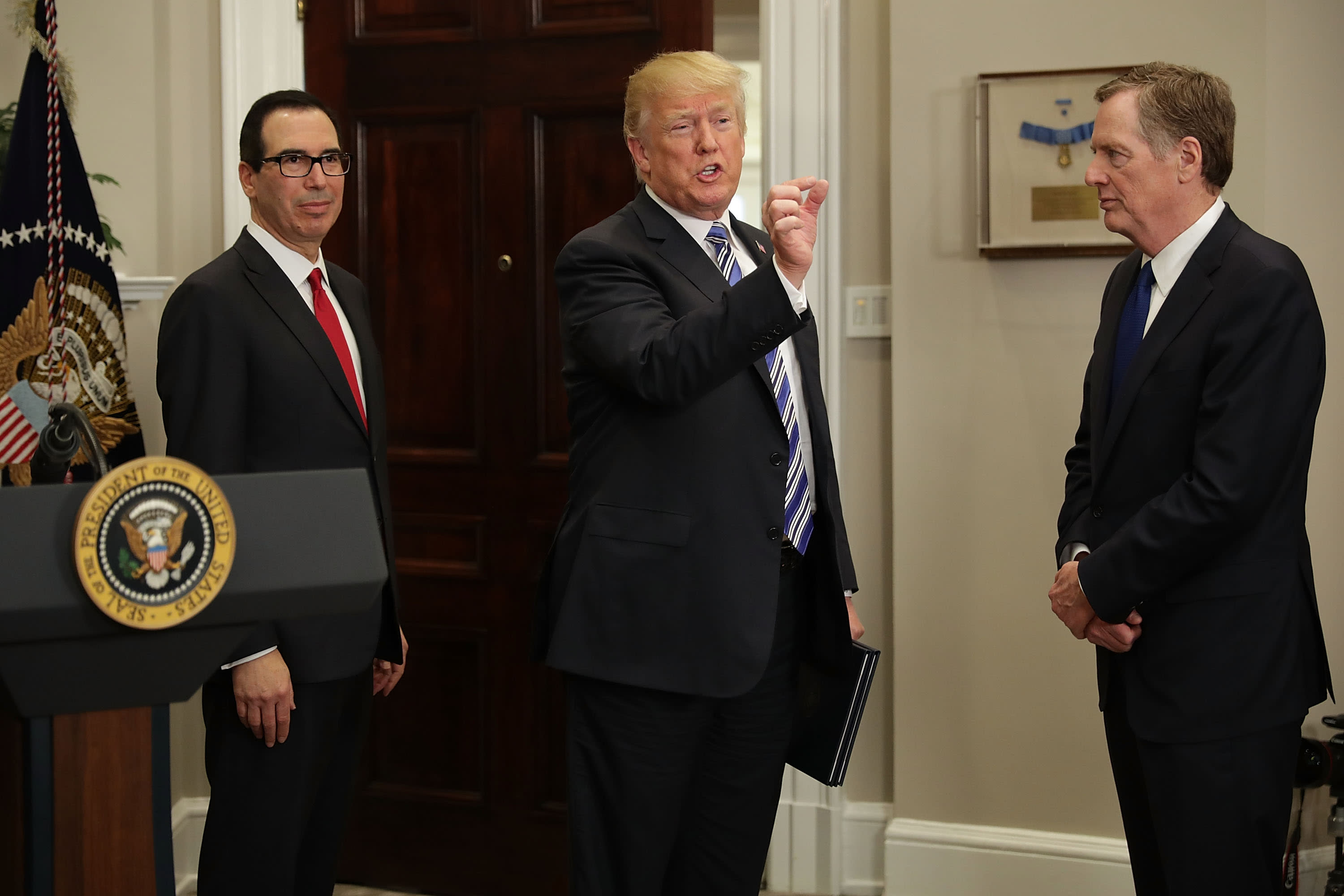A reminder that Trump's tariff war against China might not work out as he expects it to
When Chinese goods arrive in America, importers — which are generally American but can also be U.S.-registered entities of foreign firms — pay tariffs to customs in order to receive their products. In that sense, American businesses are right that they’re the ones footing the bill.
But Trump could be right in that, eventually, it may be the Chinese that pay for the consequences of those tariffs, economists said. That would happen if exporters in China slash the prices they charge their American customers — and therefore earn lower profits — to remain competitive. Effectively, that situation would mean the Chinese companies are paying for the levies going into U.S. government coffers.
One of the latest papers published on the topic is by economics researchers from the International Monetary Fund, Harvard University, University of Chicago and the Federal Reserve Bank of Boston. Using price data collected at the U.S. borders and at retailers, the researchers found “nearly complete pass through of tariffs” to America. In other words, little cost is falling on the Chinese manufacturers.
“We find that the U.S. tariffs were almost completely passed through into U.S. domestic prices, so that the entire incidence of the tariffs fell on domestic consumers and importers up to now, with no impact so far on the prices received by foreign exporters. We also find that U.S. producers responded to reduced import competition by raising their prices,” wrote researchers from the Federal Reserve Bank of New York, Columbia University and Princeton University.
#US #USA #News #Politics #ForeignAffairs #China #PRChina #Trump #DonaldTrump #Jinping #XiJinping #Economics #Economy #Bailout #Trade #Tariff #Tariffs #WarOnTariffs #TraiffWar #Nationalism #Patriotism #NoNationalism #Patriotism

Is China really paying for Trump's tariffs? It isn't so straightforward
U.S. President Donald Trump has repeatedly claimed that America is collecting billions of dollars in tariffs from China, but many American businesses argue that they're the ones paying.www.cnbc.com
#Economics
#Economy
#Politics
#US
#USA
#Trump
#DonaldTrump
#News
#ForeignAffairs
#China
#PRChina
#Jinping
#XiJinping
#Bailout
#Trade
#Tariff
#Tariffs
#WarOnTariffs
#TraiffWar
#Nationalism
#Patriotism
#NoNationalism
2 people like this
A uniform percentage tax on all goods is the type that doesn't affect any buyers decision for one product over another. If a tax can pass a mathematical independence test relative to peoples choices, then it's a good tax; however, the size of a good tax can easily be argued.
Taxes that fail independence tests are causing people to make sub-optimal decisions, thus distorting a market ideal.
Taxes that fail independence tests are causing people to make sub-optimal decisions, thus distorting a market ideal.



Tariffs are just like the gold standard: They have turned obsolete and were buried for good. Only fools would visit the cemetery of archaic trading methods to dig them up again in regards to revive them. Trump should read [Adam] Smith for once and compare it to John M. Keynes to realise what has happened between these two ideas; although, on the other hand I doubt that he would understand either one.